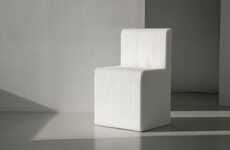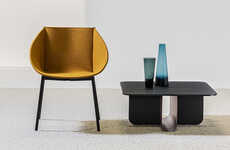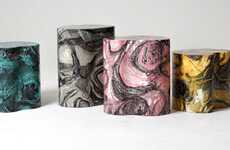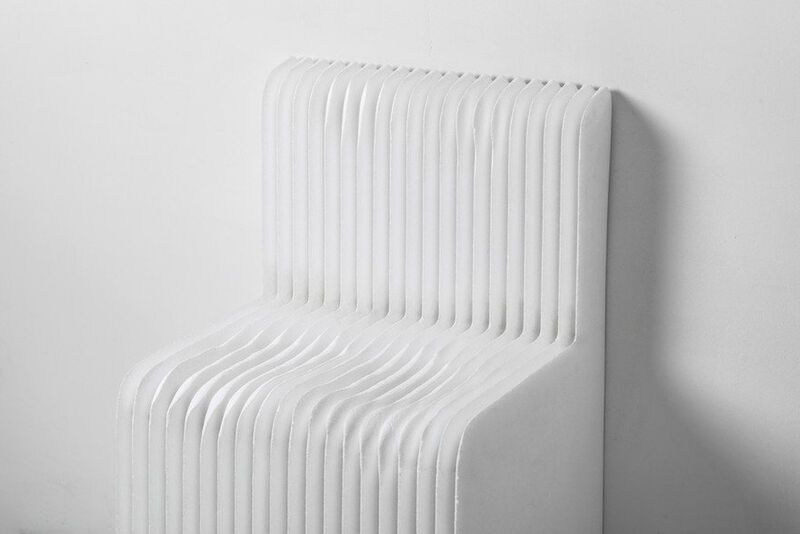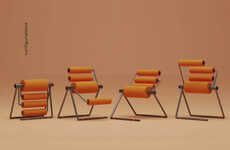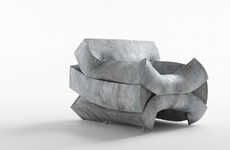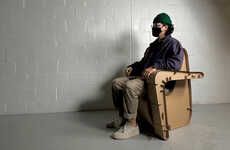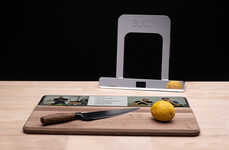
The Tamable Chair Experiment Customizes to the User's Shape
Elena Rahman — July 8, 2021 — Art & Design
References: donghwansong & core77
Designed by South Korea-based industrial designer Donghwan Song, the Tamable Chair is uniquely made from Styrofoam. The material was intentionally chosen for its ability to deform under pressure. Song's goal is to make a completely customized chair to the user's body without any electronic aid.
For now, the Tamable Chair is in its experimental phase. The idea behind its name is to "gradually optimize" the chair the more it is used, thereby, in a sense, taming its material. Part of the fun is waiting to see what shape the chair will settle into after a few weeks of use. The design concept boasts a blocky supportive base and a slender backrest in all white. Vertical divots flow down the chair for a textured appearance.
Image Credit: Core 77
For now, the Tamable Chair is in its experimental phase. The idea behind its name is to "gradually optimize" the chair the more it is used, thereby, in a sense, taming its material. Part of the fun is waiting to see what shape the chair will settle into after a few weeks of use. The design concept boasts a blocky supportive base and a slender backrest in all white. Vertical divots flow down the chair for a textured appearance.
Image Credit: Core 77
Trend Themes
1. Customized Styrofoam Furniture - The use of Styrofoam for customizable furniture offers opportunities to disrupt the home furniture industry.
2. Shape-molding Materials - The development of shape-molding materials can revolutionize the production of personalized products in various industries.
3. Non-electronic Customization - The use of non-electronic aids for customization can offer sustainable and affordable solutions for personalized products.
Industry Implications
1. Furniture Manufacturing - The furniture manufacturing industry can utilize shape-molding Styrofoam to create personalized, sustainable, and affordable furniture options.
2. Automotive Industry - Shape-molding materials can revolutionize the production of personalized car parts and accessories.
3. Healthcare Industry - Non-electronic customization in the form of shape-molding materials can be used in orthotics and prosthetics to improve patient comfort and mobility.
4.1
Score
Popularity
Activity
Freshness


